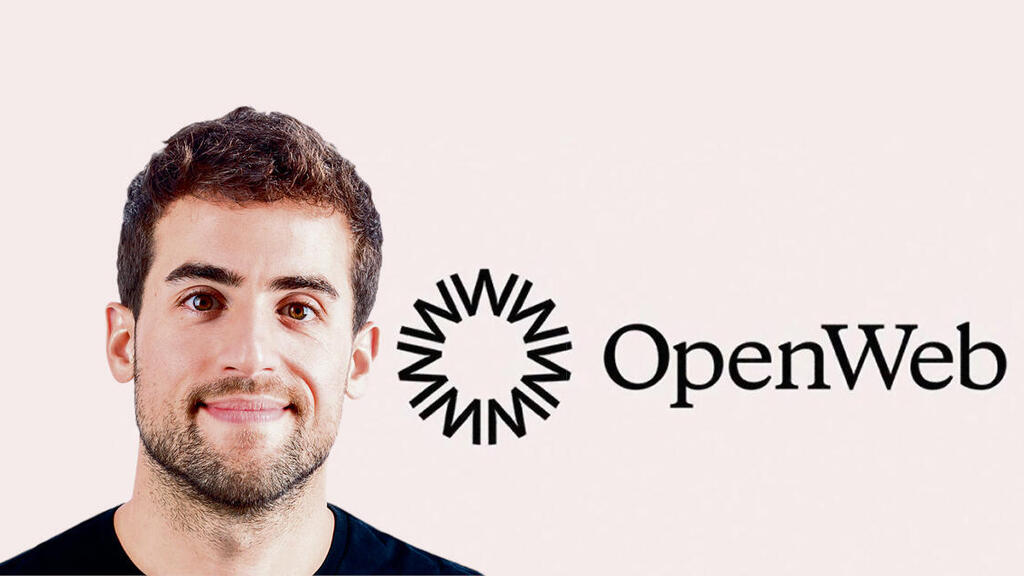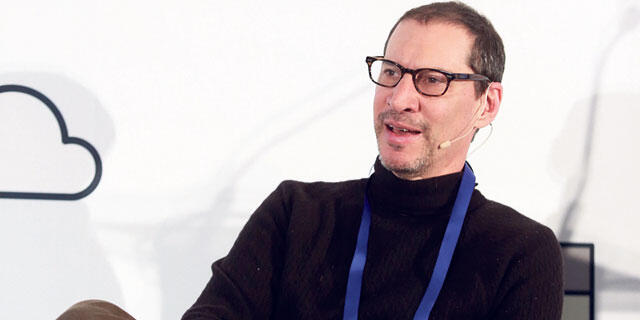
OpenWeb turmoil: Jeff Horing's role in ousting CEO Nadav Shoval reveals the unicorn industry's dark underbelly
As Shoval battles his removal in court, the case highlights the shifting power dynamics between startup founders and influential investors.
It is difficult to determine which party is in the right in the unfolding drama at Israeli unicorn OpenWeb. In early September, the company, which develops social engagement systems, held an extraordinary telephonic board meeting where it decided to remove Nadav Shoval, the founder and CEO since the company's inception. Since then, a heated legal battle has ensued over the legality of Shoval’s removal, some of which has already leaked to social media and was fully detailed in a lawsuit filed by Shoval against the company in the Tel Aviv District Court. The dispute, ultimately to be decided by lawyers, provides a glimpse into the behind-the-scenes conflicts within the unicorn industry.
The 200-page legal filing, including appendices, details the relationship between Shoval, who founded OpenWeb in 2012 and is considered a prodigy of Israeli high-tech, and the seasoned venture capitalists, led by Jeff Horing, who founded and manages Insight Partners. Insight, which manages tens of billions of dollars, has been a major backer of the Israeli unicorn scene and was one of the first firms to create billion-dollar private tech companies in Israel. It remains a key player in many of these companies, and in OpenWeb’s case, Horing serves as a dominant board director.
The conflict began during a period of growth for the company, but over the last year, Horing and other investors began considering realizing their holdings in the near future, while Shoval aimed for an IPO further down the line. On an organizational level, Horing had the final say, and along with other board members, he signed a letter to Shoval stating: "This letter constitutes formal written notice pursuant to the terms of your employment agreement that your employment with Open Web Inc. and its parents, subsidiaries and affiliates is terminated effective immediately for “Cause” (as defined in your employment agreement) as a result of, among other things, your willful misconduct and insubordination regarding today’s Company-wide meeting." This letter was sent on September 11, and after failed negotiation attempts, as described by Shoval’s lawyer Nati Haim from the Agmon and Tulchinsky law office, he filed for a unilateral injunction to halt his dismissal and prevent another board meeting scheduled for that day. The Herzog law firm, representing OpenWeb, rejected all the claims and argued that all decisions had been made lawfully. The judge sent the parties to labor court and denied the injunction request.
Related articles:
According to the board of directors, the "cause" for dismissal arose after Shoval refused to acknowledge his replacement and sent an email to all employees, stating that although they were informed of an interim CEO, he was still running the company. The email was sent in early September after a telephonic board meeting, to which neither Shoval nor CFO Haim Sasson was invited, during which the board decided to "accept Shoval’s resignation."
Shoval insists he did not resign and claims he merely sent a letter to the board expressing disapproval of a previous decision that placed him under the authority of an executive chairman rather than under the general oversight of the board. It appears Horing and other directors, including Margaret Wu of Georgian, seized the opportunity to oust Shoval.
Shoval’s journey started on a high note. Freshly discharged from the IDF’s elite Maglan unit, he founded the startup with Roee Goldberg and Ishay Green, both of whom have since left the company. Shoval’s is a Cinderella story—he suffered from dyslexia as a child and didn’t earn a high school diploma, yet enlisted in an elite combat unit and founded OpenWeb immediately after his military service. His first contract as CEO shows he earned a modest salary of 8,000 shekels, with a promise to raise it to 20,000 shekels if the startup raised more than half a million dollars. Under Shoval’s leadership, OpenWeb raised almost $400 million, and his employment agreement improved to an annual salary of $350,000, with bonuses at the board’s discretion. A year later, the company raised another $170 million at a $1.5 billion valuation, led by Georgian, which also played a key role in his removal, alongside Insight.
However, in the frenzy of fundraising, Shoval seemingly did not notice or fully grasp how his share in the company was diminishing. According to his lawsuit, he currently owns 7% of the company, but most of this is in options, leaving him with less than 1% in actual shares. According to those close to Shoval, he traded shares in fundraising rounds for more control over the board—keeping four out of nine or eight directors to maintain his grip on OpenWeb. Shoval used his majority to remove Tim Harvey as chairman in June, a move that reportedly angered Horing, who has now appointed Harvey as interim CEO. In Harvey’s place, Omer Cygler, who supports Shoval’s removal, was appointed chairman. During a heated board meeting on September 30, Shoval dismissed Omer Cygler and Scott Galloway and replaced them with two new directors, though OpenWeb does not recognize their appointments.
Shoval also realized his financial situation was worse than expected. The inclusion of the term "cause" in his termination letter means he is not entitled to half of his annual salary, and more importantly, he must exercise his options within 90 days, requiring millions of dollars. Despite a $157,000 bonus for 2023, this amount won’t be enough to preserve his stake in the company.
The lawsuit reveals that Shoval (34) may have lacked the life and business experience to navigate the complexities of dealing with seasoned investors. Emails exchanged between Shoval, Horing, and Harvey include generic praise like "Fantastic, well done" or "Really well done," but they list other employees, not Shoval, as responsible for major deals.
A key turning point was the company's desire to appoint an executive chairman. Correspondence from last July between Shoval and Galloway shows that Noam Bardin, former CEO of Waze and an ex-Google executive, was a candidate. Shoval argued that Bardin lacked IPO experience and wasn’t a good fit, but Galloway indicated that the decision would be made without input from management—a sign Shoval missed.
Galloway’s alignment with Horing is unsurprising, as both are veteran investors likely to cross paths on future boards. However, Avishai Abrahami, Wix CEO and expert director, took a more unexpected stance. Abrahami provided an affidavit saying he missed a key telephonic board meeting on September 6, during which it was decided to "accept Shoval’s resignation" after a change in his powers. Abrahami admits that if he had attended, he might have tried to calm things down, but later signed off on Shoval’s termination letter without delving into the details. He claims he would have opposed the inclusion of "cause" had he known about it, as it contradicts his views then and now.
From the affidavit, it seems that either Abrahami did not delve deeply enough into the company or that he believes Shoval should vacate the CEO position but does not want to say so explicitly. The other investors, the same individuals who signed the seemingly laudatory emails, are remaining silent, including Avi Eyal from Entrée Capital. It appears that Shoval is about to realize that even if the investors value him, no one will want to clash with Horing, who holds stakes in dozens of other companies.
With the escalation of the affair, Shoval claimed that quite a few customers and employees would leave the company if he did not remain in the CEO position. However, the letters from customers attached to the lawsuit do not contain particularly explicit threats. According to Shoval himself, OpenWeb is currently on a growth trajectory with clients such as CNN, the Wall Street Journal, and FOX, employing 370 people. In other words, it is in a situation where, according to many investors, the founder holds less significance, especially for dominant investors like Horing. It is likely that Shoval already understands that, given the resulting turbulence in relationships, he will not be able to return to an active position but may only seek to minimize financial damage and negotiate the terms of his dismissal.
Shoval’s story illustrates that while founders may be the stars, control ultimately rests with investors. He is learning the hard way that seasoned investors like Horing become much more involved in challenging times. Shoval didn’t understand the line between personal ambition and the shareholders' interests.
OpenWeb stated: "Shoval’s request was rejected, and Tim Harvey was officially recognized by the court as CEO of OpenWeb."

